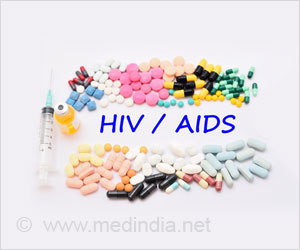According to a new study a significant proportion of HIV positive patients may not be disclosing their infection to NHS staff, when turning up for treatment at sexual health clinics.

Currently, it is estimated that around one in four people in the UK who is HIV positive doesn't know s/he is infected with the virus.
The estimate is based on several sources of data, including the GUMAnon Survey, which routinely looks for HIV infection in blood samples taken from patients to test for syphilis at one of 16 participating sexual health clinics across the UK.
The results are then matched with the individual's diagnostic status—whether they had been diagnosed before their arrival at the clinic, or were diagnosed at their clinic visit, or left the clinic "unaware" of their HIV status.
It is thought that a proportion of patients who do know their HIV status nevertheless choose not to reveal it to NHS staff when attending for services elsewhere, so the researchers set about trying to find out whether there is any basis for this belief.
They therefore analysed all HIV positive samples from one participating GUMAnon clinic in London in 2009 for the presence of very low viral loads—very low amounts of circulating virus, and a hallmark of successful drug treatment—and various antiretroviral drugs.
Advertisement
The remaining 18 did not have a test at the clinic, and were therefore classified as undiagnosed. Yet almost three out of four (72%; 13) of these samples had very low viral loads, indicative of successful drug treatment.
"This is the first published objective evidence that non-disclosure of HIV status as a phenomenon exists in patients attending [sexual health] clinics in the UK," write the authors.
"Given the high proportion of individuals classified within this study as [non-disclosing], the extent to which these findings can be extrapolated to other clinics, and the degree to which they may influence estimates of the proportion of undiagnosed HIV in the community, warrants further study," they conclude.
In an accompanying podcast, lead author Dr Ann Sullivan of London's Chelsea and Westminster Hospital NHS Foundation Trust, explains that there are many different sexual health clinics in London which people who are HIV positive can attend, so it may be easier for them to keep schtum about their infection than in other parts of the country.
The reasons why they don't come clean about their HIV status may be that they don't want to be "judged," given that they have come to the clinic with another infection, which implies they are indulging in risky sexual behaviour, she suggests.
But by not revealing their HIV status, they could be missing out on the chance to be treated more holistically and discuss other aspects of their health which might be affected by HIV, she says.
Source-Eurekalert















